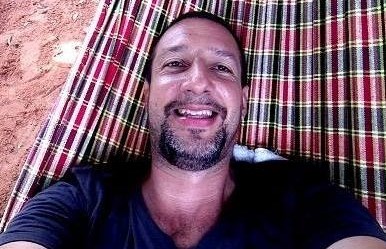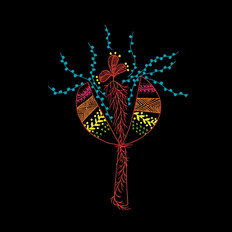
Indígenas.br - Indigenous Music Festival - Schedule 10/09
Day 10/09 – Friday – 7:00pm
Music video show
— Renata Rosa and Kariri Xocó
— Departure from the Umbu Race — Pankararu in São Paulo — Pankararu, by Alfredo Bello
— Yaathelha Setsotwalha – Fulni-ô Cifurnas
Show
— Gean Ramos Pankararu* (PE)
Chat
— Indigenous Musicalities in the Northeast — Renata Rosa, Iberu and Cema Kariri Xocó, Alfredo Bello and Lidia Pankararu. Mediation: Alexandre Herbetta.
Renata Rosa and Kariri Xocó
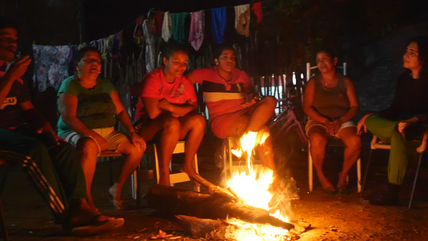
The actress, singer, songwriter and rabequeira Renata Rosa has been related for more than 20 years with the Kariri-Xocó who live on the banks of the São Francisco River in the municipality of Porto Real do Colégio in Alagoas. The singers – with their torés and rojões – together with a strong spirituality delighted the young artist who has since visited them frequently to spend long seasons with the Kariri-Xocó, participating in their rojão singing wheels, which became a strong reference and inspiration for her singing and its music. After many years singing together in Kariri-xocó territory, it was Renata’s turn to invite them to participate in their albums and later create together a show with which they performed in important Theaters and Radios abroad.
Eberu Suira and his sister Cema participated in a tour of Europe with Renata Rosa, including the important Theatre de la Ville in Paris, thus disseminating this culture brought by the memory of the teachings left by their ancestors. In addition to this record in this important theater, there are other informal meetings of Renata with Cema and Eberú in the village, showing intimacy and joy of the conviviality and singing together in records made by Melissa Huart.
Departure from the Umbu and Pankararu Race in São Paulo
The Pankararu are a people of Pernambuco and perform rituals such as the Toré and the Umbu Race, recorded in 2007 by researcher and musician Alfredo Bello. Players Eduardo no Pife and Antônio Sarrin in the armadillo tail celebrate the renewal of faith and culture of these people during the final part of the Umbu Race. Many Pankararu have migrated to São Paulo since the 1950s, and live mainly in the Real Parque community in Morumbi and in other locations in the capital and region, keeping their culture alive. The second part of the video shows Lidiane Pankararu’s participation with her group, opening the 15-year celebrations of Alfredo Bello’s World Best label.
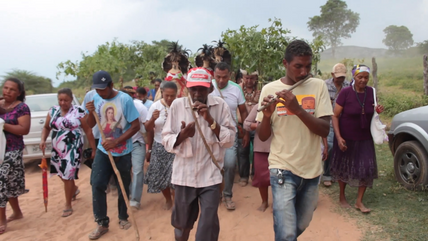
Umbu Race Departure February
Direction: Alfredo Bello – Better World Seal
The Umbu Race is one of the most important rites of the Pankararu people of Pernambuco, it lasts for 3 months and its completion takes place during 4 weekends from Carnival Saturday. In this video, we see an excerpt of the ritual taking place on the second weekend, here the exit of the Nascente Terreiro, where the celebration takes place until mid-afternoon and leaves towards the Terreiro do Poente. The one who commanded this exit for many years was Pajé Francisco, who pulls the songs, who left us in July 2021. Alongside him, Dora and Barbara, two leaders of the Pankararu people, in front of the group the Pife and the Rabo de Tatu, important instruments of Pankararu culture.
The Praiás, which symbolize the enchants of the Pankararu, follow the exit, we also see people with branches of tiring, a type of Nettle used in the ritual by the Pankararu.
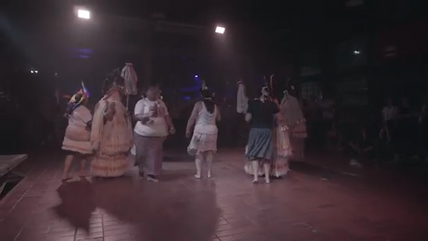
Pankararu Presentation in São Paulo
The Pankararu since the 1950s came to work in São Paulo and were located on the edge of the Pinheiros River. With the region’s gentrification, they were pushed to the area that today is the Real Park community. There they have a cultural association that maintains their cultural and religious practices. In the video, there is an excerpt from the Pankararu community’s presentation during the 15-year presentation of the Best World Seal project at Sesc Pompeia in 2019.
Yaathelha Setsotwalha - Fulni Carnas
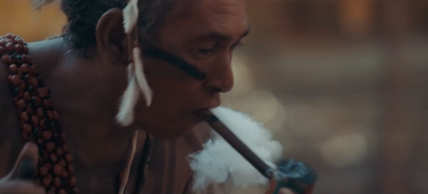
Recorded at Aldeia Multietnica, Chapada dos Veadeiros in Goiás in 2019, this song “Yaathelha Setsotwalha” is part of the repertoire and album “Cafurnas Fulni-ô – Woxtonã Yathe lha Kefkyandodwa Kefte” – “Come listen to Yathe, our language you’ve never heard”. The Fulniô-o are an indigenous people from Pernambuco and their songs are led by Naxiá Fulni-ô. The video begins with the narration of Fookhlyla Fulni-ô on the importance of singing in the language and protecting her culture. The Cafurnas Fulni-ô project is a tribute to Santxiê Tapuya Fulni-ô, in memory of his struggle and resistance at the Sacred Shrine of the Pajés – Brasília.
Direction: Tâmara Jacinto and Tiago de Aragon
Capture, Mixing and Mastering – André Magalhães
Toré Capture – Fulni-ô Cinema Collective
Achievement: Onã Productions
Partnership: Multiethnic Village
Gean Ramos Pankararu
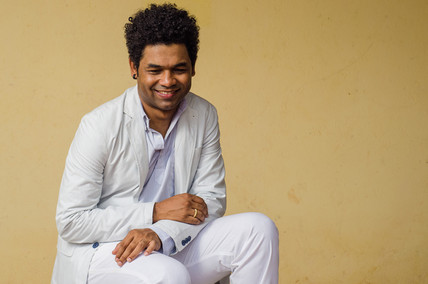
Gean Ramos Pankararu is a singer, songwriter and guitarist considered a revelation of Northeastern music and contemporary indigenous music. From the Pernambuco backlands in Jatobá, his music crossed the boundaries of the Pankararu village. Gean presents in this video recently composed songs such as The Rhymes, Old Pajés, Haikai, Nanã and Postcard Pankararu in scenarios in the rural Pernambuco region. Francisco, where he was born and raised. He has a 20-year career, with a guitar on his back and several copywriting compositions in his luggage.
Image credits.
Clips: Look of the Soul movies (Alexandre Pankararu, Graciela Guarani),
Pakararu movies (Ney Pankararu)
Direct audio: Pedro Lucas Pankararu.
Year: 2021
Chat — Indigenous Musicalities in the Northeast
Participants: Renata Rosa and Eberu and Cema (Kariri-Xocó-PE), Alfredo Bello and Lidia Pankararu (PE)
Mediation: Alexandre Herbetta
Those who think there are no indigenous people in the Northeast are mistaken. According to IBGE data from 2010, the Northeast has the second largest indigenous population in Brazil (27.8%) represented by the Pankararu, Fulni-ô, Kariri-Xocó, Xucuru peoples, among others. Although, for many decades, these peoples did not call themselves indigenous because of strong repression by the State that prohibited them from speaking their languages and performing their rituals, a process of recovering those identities is currently taking place, strengthened by the Toré ritual, a spiritual expression of great importance in the indigenous Northeast.
In this round of conversation, the conversation will take place between singers Kariri-Xocó Cema and Eberu, who, in partnership with Renata Rosa, performed on some stages around the world promoting the polyphonies of these people. Alfredo Bello, musician and researcher recorded the Pankararu ritual that takes place in Pernambuco and talks with Lidiana Pankararu about the Imbu Race.
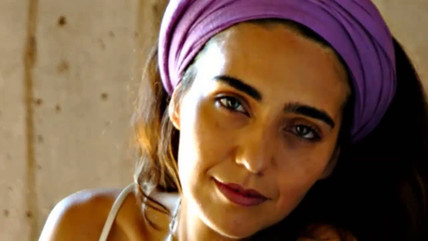
Renata Rosa
Renata Rosa is a Brazilian actress, singer, songwriter, rabequeira, poet, and researcher. She is one of the most internationally awarded singers and received the Choc de l’Année 2004, the highest award given to Music in the World, by the magazine Le Monde de la Musique for her first CD Zundo da Mata and the Brazilian Music Award 2009 as Best Regional Singer for her second CD Dream Cloak. As an actress, her work with Iranian director Massoud Saidpour (New Worlds Laboratory of Performances) stands out. The female protagonist was Maria Safira, from the miniseries A Pedra do Reino (TV Globo, 2007) directed by Luiz Fernando Carvalho. Renata was also responsible for composing the choirs’ music for this work. Renata Rosa has worked as a rabequeira since 1998 in the Brazilian Ox Sea Horse, from Condado, and was a slacker at the Maracatu Rural Golden Star Alliance in Aliança, PE, where she acted as Dama do Cacho and countermaster (whose function is the improvisation of poetry along the poetic lines of rural Maracatu). Since 2003, Renata Rosa has performed at over 180 festivals in Europe.
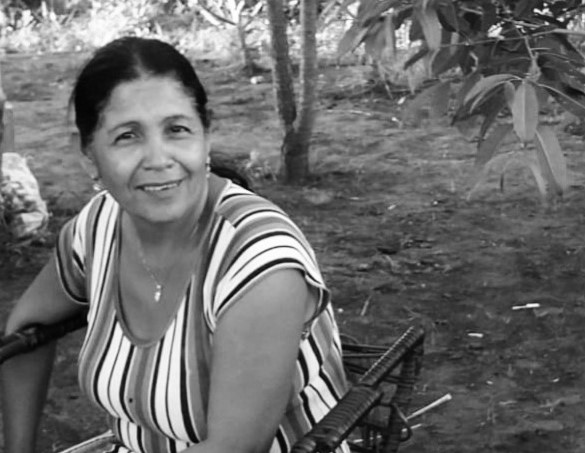
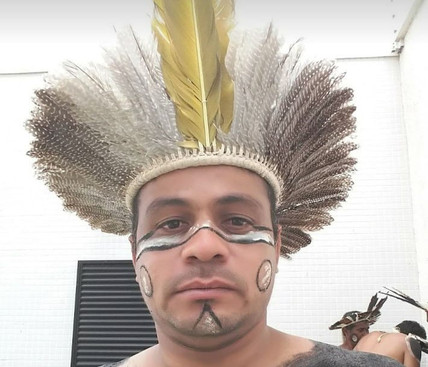
Eberu and Cema (Kariri-Xoco)
Eberu Suira and her sister Cema are indigenous to the Kariri-Xocó people whose village is located on the banks of the São Francisco River in the municipality of Porto Real do Colégio in Alagoas. They are farmers, artisans, singers from Toré and Rojões and promote their culture by sharing the customs and teachings left by their ancestors. For them, there is no greater satisfaction than when they bring joy to others.
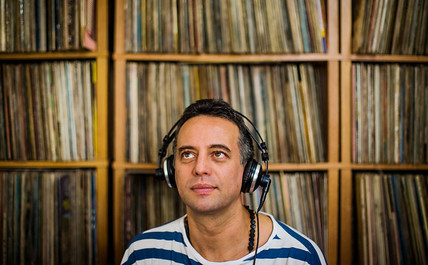
Alfredo Bello
Alfredo Bello, also known as DJ Tudo, was born in Juiz de Fora, Minas Gerais. He spent his childhood moving to another city. He studied Sociology for two and a half years, but ended up attending the School of Music in Brasilia because he was passionate about double bass and Brazilian popular music. During his adolescence he had several bands, one of the most famous being “The Dogs of the Dogs”. They participated in various events, including outside the country. He has played with several artists and in orchestras. Passionate about music, he started collecting LPs at a young age and created a project called Better World Label. On this site he offers traditional music. In addition to this work, he carried out other projects, such as traveling around Brazil researching and recording the artistic expressions of Brazilian culture.
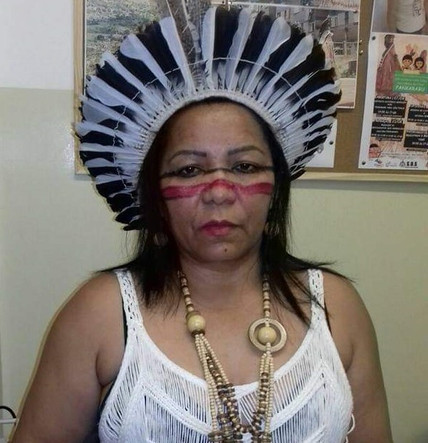
Lidiana Pankararu
